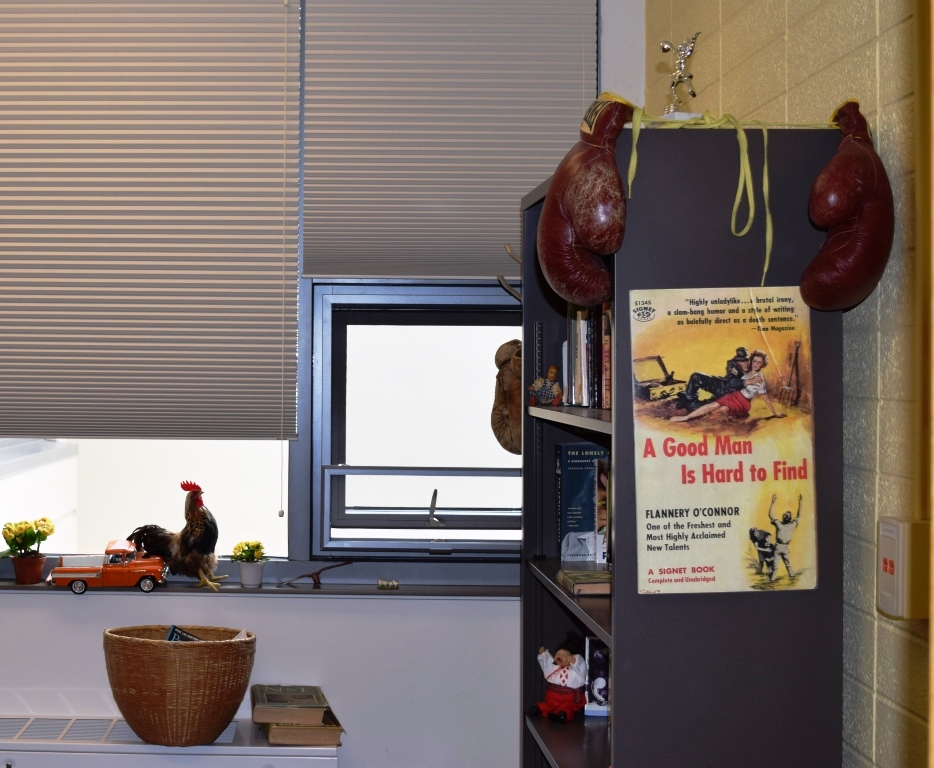~From English Department Communications Intern Ashley Alfirevic
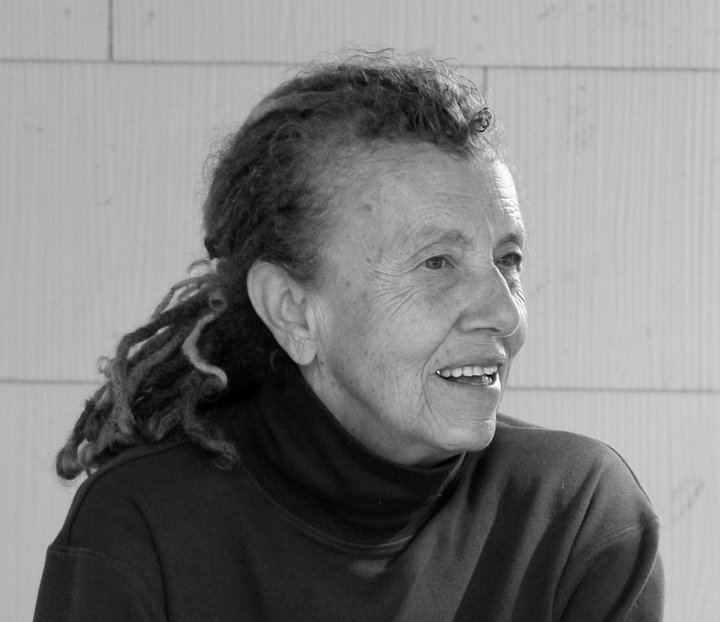
Name: Leslee Becker
Title: Professor of English
Program: Creative Writing MFA Program
How would you describe your work in the English Department?
It’s not that different from everybody else’s. It’s teaching, committee work, and in Creative Writing – for me anyhow. I think my colleagues see the same way – much of our work is reading short stories and novels. So it’s like, “Oh, this is wonderful.”
Yeah, it doesn’t sound like work if it’s doing things you love.
I had somebody visit me onetime, and I wanted her to shut up so I could get some work done. I think she was feeling sorry for me. And she kept leaning over my shoulder when I was trying to read this short story [that a student wrote] and then I’d turn a page and she’d say, “No! Don’t do that. I want to go back and re-read this part.” And then I was trying to put comments on and I said something about the dialogue and the scene, and she said, “No, that’s all wrong! That’s fantastic dialogue.” She, I think, envied me.
And I’m teaching a literature course right now and I love it. It’s something I’ve never taught before. It’s an E370 – American Lit in Cultural Contexts. And we’re doing it under this umbrella heading that includes celebrities, popularity, myth, violence, scandal. The reading that I’m giving the students and the papers that they’re doing, some of them are meant to probably exercise some things that are brand new for students: writing letters to writers, imitating a writer…
That actually sounds really interesting. I’ve never heard of that in a literature course. I’ve always kind of envied the creative writing side of that.
Oh, well there was a student presentation today on Cormac McCarthy’s No Country for Old Men, and we had to write an opening line from that character’s point of view and pass it to the next person. By the time it came around – there were twenty students in the class – somebody had done something so funny and written about where to get donuts. It turned into the evil character in the story just trying to find a good Mexican burrito. I loved it.
So what brought you to CSU?
Well, a job description that I read. I can’t remember how I found out about it, but the chance to teach in such a prestigious MFA program… I didn’t know anybody, but I knew Stephen Schwartz’s work and read his stories and I loved them. And to tell you the truth, I didn’t want to move. So it was an unusual interview because supposedly I wanted to stay back in California with my friends. And then I was so charmed by everybody in the department here, plus I had meals with students, went to potlucks. And everything I saw then is how it is now. I better just stop there, because otherwise it’ll get dark by the time we finish [this interview].
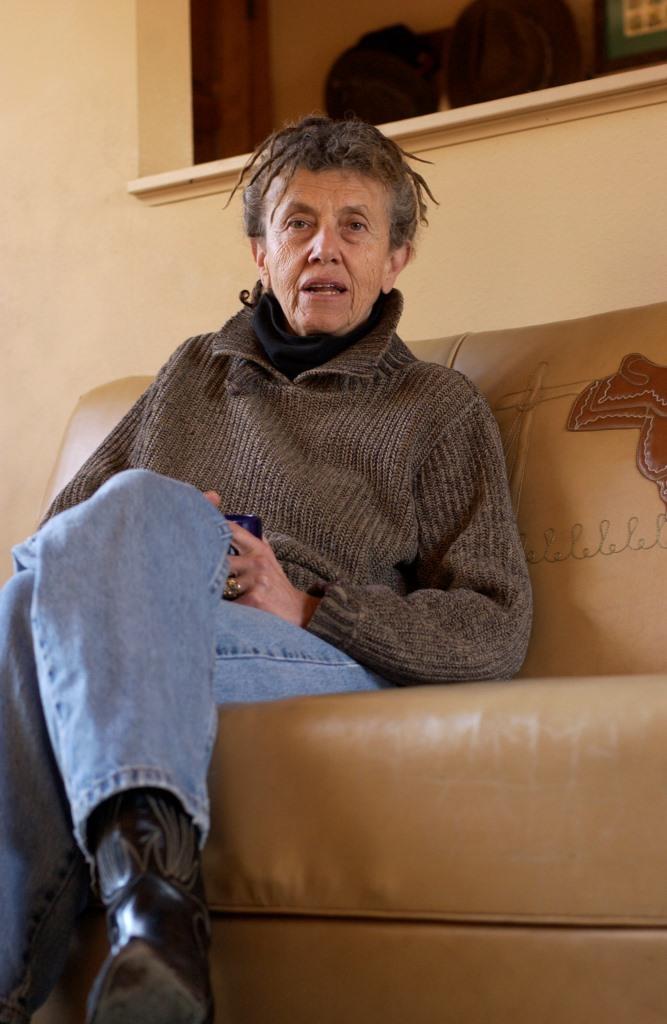
What do you enjoy most about your work?
I have to say – and I really mean it – interacting with students and my colleagues. I think I came to school moaning today, getting up at four. I was just dragging today and then low and behold, [I had] that student’s presentation in a class and then [I was] talking to a student after class, getting to know more about him. And my colleagues too, when I come in, there’s something so genuine and accepting about the people, our quirks, and they tolerate it.
Why are the humanities important?
I’ll tell you, I always think when somebody asks why the humanities are important – it’s not that I feel defensive – I think, “Where’s that question coming from and why?” And there might be some sort of false idea that what we do is sit around and, you know, chat about books and fictional characters and everything else.
I have to steal from people. “You cannot get the news from poetry, but men die every day for lack of what is found there.”
I had never thought of that word “humanities” before. I would think of movies, theater, art, as having something mysterious happen to me. Whenever my friends hear me get highfalutin about this, I say, “Something just happened. I watched this movie and it just affected me.” Has it ever happened to you, when you look up from the page, and oh my god? Someone’s just said something that’s affected you. I like being affected.
What inspired you to pursue a degree in English?
To tell you the truth, I was absolutely lost and I wasn’t going to go to college. I grew up in this small town, really backwater. We didn’t even have a guidance counselor. And I stupidly, without any background in theater or drama, thought that I wanted to go to New York and study acting and go on the stage. And a man at the school who took on the job – I think he was a basketball coach – took on a role of trying to guide people during the day. And he said, “Have you thought about college?” And I said, “No, I’m going to go to the American Academy of Dramatic Arts.” And he said, “Well, just to be on the safe side…”
So I thought theater and English sometime around my sophomore year, and with this particular teacher we were reading Faulkner and Melville. I was pretty stupid about both writers and he liked that. Every time I’d say something, he’d say, “That’s so fresh and original.” I was responding from passion and I just loved it.
In terms of some sub-careers, I’ve heard that you’re designated as the Hall Monitor of Eddy.
It’s a role I took on because I really wanted to have a belt that said, “Hall Monitor.” And sometimes I’ve gone down the hall and it looks like I’m checking to see if people are in their offices. I have a pass to go to the bathroom.
When I was first in college in dorms they had hall monitors. Did you ever hear of such a thing? Oh, it must bring up stuff for people, cause sometimes I’ll walk down the hall and go, “Hall Monitor!” And people… [She turns quickly to her desk and types to demonstrate.]
It’s something I call myself. And I never got a badge or a belt or anything.
Maybe that’s something we’ll have to fix. I’ll make a note of this.
You think there’d be power as a teacher, and there is. Probably like my colleagues, I do not like the power it has when it comes to grades and how it’s going to affect students. So this is kind of a silly way to exercise it. Without, I hope, hurting people.
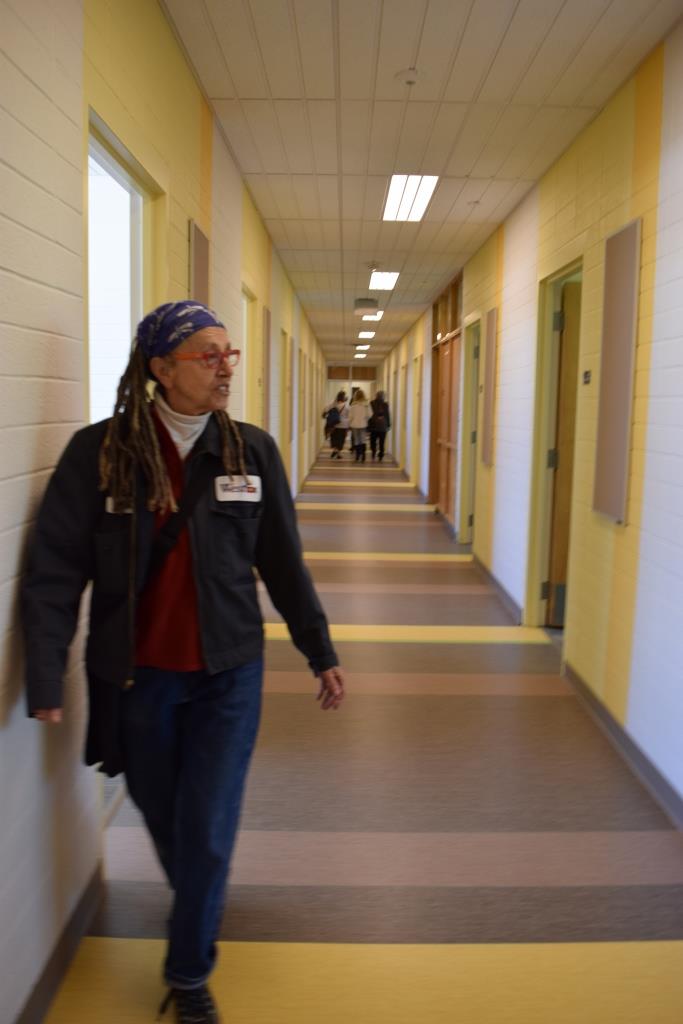
And I’ve heard you are also the English Department Movie Maven.
When I first came here there were very few theaters. One time I sent out an email, and the reactions were amazing saying, “Thank you! Thank you!” And all I was doing was recommending a movie. And then people started to ask me, “What have you seen lately?”
And I haven’t done it for a while, and I actually haven’t seen a movie in a long time. I thought that last year’s movies were pretty meh – no matter what they say at the Academy Awards. Maybe it’s a confession of how much time I spend watching Netflix picks and things like that.
I do remember recommending a Coen Brothers movie called A Serious Man. And it was really about a teacher facing tenure and facing much more. It was done with their humor and it was so incredibly funny and bleak. Some people were walking out of the theater when it ended saying, “What was that all about? What a waste of money.” But there was some man in the back, and he laughed every time I did. So in a way it’s like having company, but I don’t have to sit with them and put up with their noise.
What’s on your movie list right now, out of curiosity?
Oh, that’s interesting because I’ve got The Revenant up there because of that director. It has more to do with that director, to see what he’ll do.
Some of the people won’t watch the movies I recommend because they think they’re going to be very dark, always set in Eastern Europe.
Oh, I know the movie I’m dying to see. It’s Son of Saul. It won the best foreign language movie this year.
By the way, I’ll have to take a picture of your office. There’s so many fun things in here.
[Gesturing to a picture of a cat] That’s from the Clinton’s. You can write to the White House and ask for pictures of their pets. You get one, if you’re lucky. Somebody must have a job in the White House answering mail from the pet’s point of view. But I remember composing the letter saying, “My little friend says hi” – I don’t know what I was trying to imitate – “and would love a picture of Socks.”

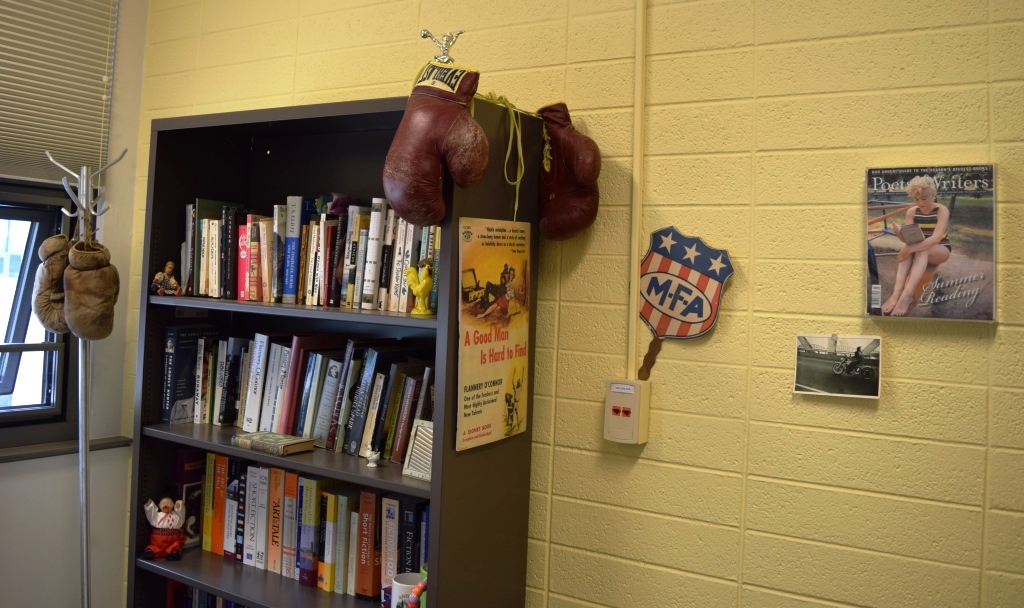
Are you working on any special projects right now?
Yes, I’ve been working on a novel for a long time. Novels – that would be a first for me. I thought I had finished it about three years ago. Thanks to colleagues here and Judy Doenges and EJ Levy and getting it to some places in New York that really let you know what’s wrong with stuff, [I’m revising].
Something I’ll never do again is have a kid as a protagonist. But this past summer, I made a major change to the beginning of it. I keep going back to it because I can’t let it go, Central City, about a bus driver taking people to Central City to gamble. Not a lot to go on, you might say. I like to write about jobs that I don’t have or know anything about so that I can learn about them. I might have goofed a lot. I set it back in the past so I wouldn’t have to deal with cellphones and that kind of thing.
I’m going to go back to it because the secondary characters, the people on the bus, are more colorful than the main character. I’m not sure if she has a history of kindness towards her ten-year-old son, and that’s one of the more controversial parts of it. She’s kind of referring to her son a lot, I think, to get sympathy that she doesn’t deserve. I never thought of it as taking a risk. It was one of the first things people reacted to. She’s driving the bus. So I think there’s more suspense about what’ll happen to the son, so what happens to the woman I don’t think is interesting. But she meets an odd man with an odd job on the bus, so you’re expecting a romance.
Do you have a moment in the classroom that stands out as the most memorable?
It goes back a long way. In one of those big literature classes, there was an especially shy young man. He stuttered a bit. I’ll just say they all had to do presentations, and I probably worried too much when his was coming up. He latched onto that Hemingway story, “Big Two Hearted River.” Boy, he brought in his fishing equipment which had been handed down through the generations, and told us all about fly fishing and looked at lines in the story. It was, for me, an opportunity that I don’t know if we get that much to really shine, to bring out something that maybe people don’t know about us. There was a whole change in his demeanor. There was a prize for favorite presentation and the students voted his. It was just the enthusiasm, the story. I think in that class we had also done Norman Maclean’s A River Runs Through It, so that young man connected with it. That should be the story about the humanities, actually.
What’s your favorite thing to teach or your favorite thing about teaching?
It’s listening and hearing other people’s responses and being absolutely inspired. It comes from the students who see something that I’ve never seen before. Or when we’re in Creative Writing Workshop, it’s how they encourage other students. It comes out in a spirit that is really wonderful to watch.
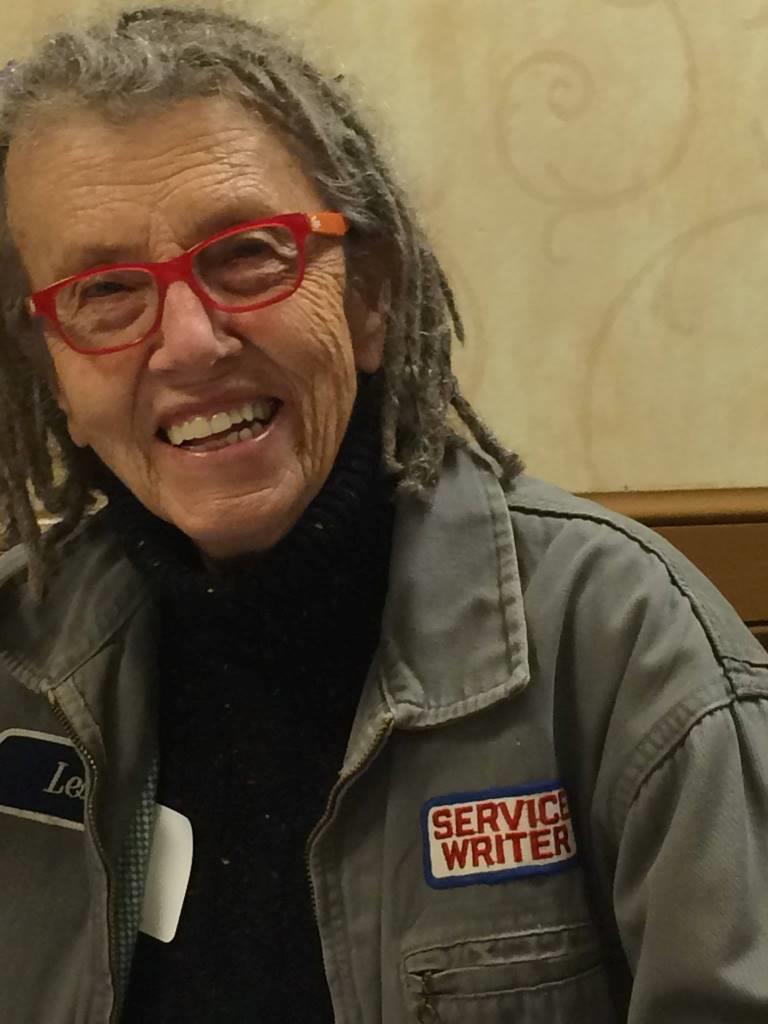
What advice would you give a student taking a class in the English Department?
Count your blessings, lucky child.
What’s the best piece of advice you’ve ever received?
I could quote Queen Victoria, but before Victorian women got married, the advice they were given was, “Close your eyes and think of England” (laughs). I never got that advice, but it’s kind of funny. I don’t know. But that was the advice that maidens got on their wedding night in England. And I think it could apply to lots of things. Whenever you’re in a bad, place – not in your car though, don’t do this – close your eyes and think of England. God only knows what that would conjure up.
Who or what inspires you?
What I admire about CSU students is they’re open. They’re not jaded. Most of them, lots of the students I’m working with this semester, are working forty hours a week. Many of them are first generation college students and I was, too.
And my colleagues. Louann Reid inspires me. You’re inspiring me right now.
What accomplishments are you most proud of?
I’ve gotten a couple of awards from CSU for service and teaching and I’m really proud of those. And one year, I was actually selected to give the commencement to the College of Liberal Arts. There were all these parents out there and I thought, “Does anybody listen to these?” People really do.
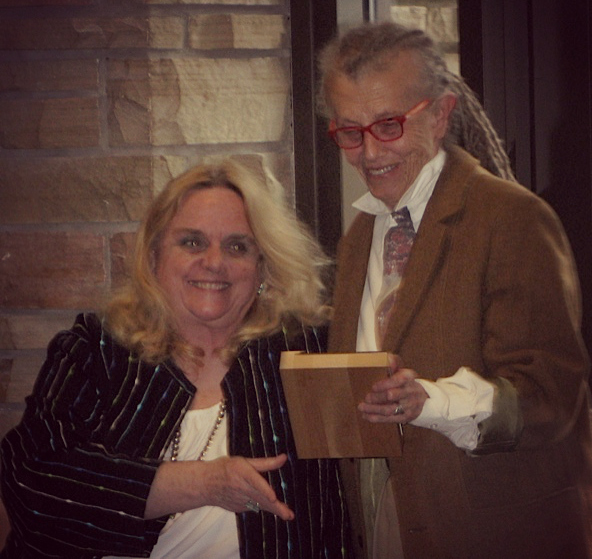
What are you currently writing or reading?
I’m reading a novel called Mr. Splitfoot by contemporary writer Samantha Hunt. I was intrigued by the setting because whoever had reviewed it said that it was using an upstate New York setting. And in my novel I’m using the Adirondacks. I wanted to just read this novel and actually, it’s very funny. It’s my treat. Late at night, when everything is done, there’s a certain time that feels like it’s okay to indulge.
When you’re not working, what do you do?
Weep (laughs). Oh, I don’t mean to be so glim.
I like fishing but I haven’t done it. And the fishing surprises me, because I’m not really a patient person. But something about getting out there with other people. Actually, I go alone and other people talk to me.
What don’t your colleagues know about you?
I tell everything. But most of my colleagues here would not know that I dated someone who worked in the White House.
I won’t press further, but I think everyone’s going to be very intrigued.
I know, and they might ask me questions and think, “My God, what administration? The Eisenhower or Truman? Roosevelt?”
What is your favorite word and why?
Evening. I love the sound of it. Evening. It feels southern to me. But during one of those big moments when I was in college when things were coming together, a professor had us read “The Love Song of J. Alfred Prufrock.” And then I heard a record of T.S. Elliot reading it. It was really kind of nasally (she does an imitation). It’s just – evening.
Which people – living or dead – would you invite to dinner?
Elizabeth Bishop, Fran Leibowitz, Helen Mirren, and I’d like to invite Kafka and his former fiancé. I’d be scared to meet James Dean.
Why would you be scared to meet James Dean?
I was so young. This might surprise people – in our little town the movies hadn’t even come there yet. And everybody has these highfalutin ideas what he represents. I just remember thinking, “Boy, I wish I could look like that.” And I don’t even know what that meant, being like him. Was I already infatuated with the idea of somebody who would die at age twenty-five? I haven’t been able to explain it.
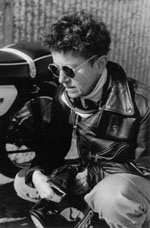
What’s one thing you dream of being able to accomplish in your tenure at CSU?
I’d like to publish the novel that I mentioned and I’d like publish another story collection.
I have to ask about the boxing gloves.
I wish I could tell you a big story behind them, but it’s something I like the looks of.
